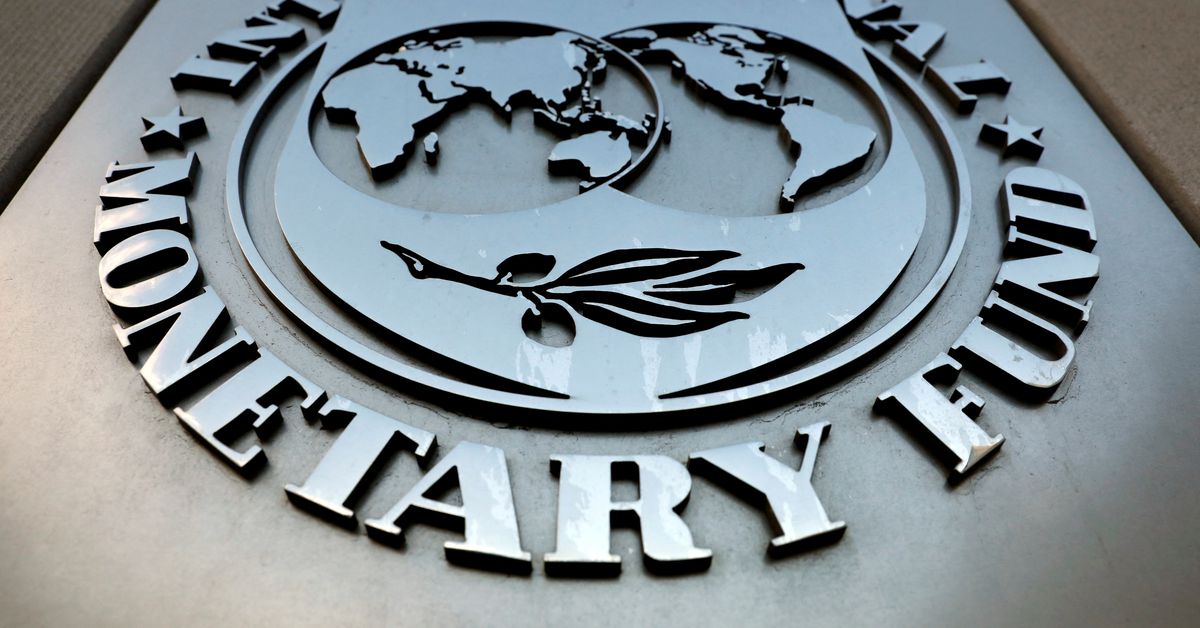Ukraine war to curb Central Asian economy, oil cushions Middle East -IMF

The International Monetary Fund (IMF) logo is seen outside the headquarters building in Washington, United States, September 4, 2018. REUTERS/Yuri Gripas
DUBAI, April 27 (Reuters) – The war in Ukraine will sharply reduce economic growth in the Central Asian region in 2022, although higher oil prices will lessen the impact for the Middle East and North Africa, the International Monetary Fund said on Wednesday.
Both regions will still feel the effect of surging commodity prices, and higher wheat prices alone could increase the Middle East and Central Asia’s combined external financing needs by up to $10 billion, the IMF said.
“The war in Ukraine will be the dominant factor shaping the outlook, compounding global headwinds from faster-than-expected normalisation of monetary policy in advanced economies, China’s slowdown and a lingering pandemic,” it said.
Register now for FREE unlimited access to Reuters.com Register
IMF Middle East and Central Asia Director Jihad Azour told a news conference that low income countries in the region would be hardest hit because of their limited reserves and their dependence on wheat from Ukraine and Russia.
The IMF classifies Afghanistan, Djibouti, Kyrgyzstan, Mauritainia, Somalia, Sudan, Tajikistan, Uzbekistan and Yemen as low income countries in its Middle East and Central Asia region.
Azour said the region’s countries face higher food costs ranging from 0.3% of GDP to 1.5% of GDP.
The IMF has loan programmes with many countries in the region, he said, and that it allowed adjustments at the height of the pandemic to enable countries to increase imports of COVID-related products.
Azour said the Fund was working with the World Bank, the UN World Food Programme and other institutions to see how they could jointly provide more support to countries facing hardship.
“Tackling rising global food and energy prices is vital. While allowing domestic prices to gradually increase, countries should compensate vulnerable households,” he said.
RUSSIAN IMPACT
Economic growth in the Caucasus and Central Asia is projected to slow to 2.6% in 2022 from 5.6% in 2021, due to close trade and financial links with Russia, reliance on remittances and tourism, and “exchange rate and cross-border payment spillovers”.
Even oil-producing Azerbaijan’s economic growth is set to slow to 2.8% in 2022, from 5.6% last year, as it relies on tourism from Russia and Ukraine, as well as wheat and fertiliser imports from the two countries, the IMF said.
Russia and Ukraine are both big producers of raw materials and supply disruptions due to the war have sent commodity prices soaring.
Inflation is seen at 10.7% in Central Asia, a result of currency depreciation pressures and commodity price surges.
“The recovery is set to lose steam for oil importers, with increasing divergence across countries, while most countries will also continue grappling with elevated inflation,” the IMF said.
Growth for the Middle East and North Africa (MENA) is forecast at 5%, down from 5.8% in 2021. In the six oil producing Gulf Arab states, growth is projected to accelerate to 6.4% from 2.7% last year.
Inflation in MENA is expected to remain elevated at 13.9% due to higher food and energy prices and, in some cases, exchange rate depreciation and lax monetary and fiscal policies.
Regional oil importers such as Lebanon and Tunisia are being hit by higher commodity prices and tightening financial conditions, fuelling inflation and worsening external and fiscal accounts.
But oil and gas exporters will benefit from higher energy prices, more than offsetting the impact of tightening financial conditions and lower tourism revenues, the IMF said.
The IMF’s April report assumes that the price of oil will average $106.83 a barrel in 2022.
The IMF earlier this month upgraded top oil exporter Saudi Arabia’s economic growth outlook to 7.6% in 2022, citing higher oil output and prices, from 3.2% in 2021.
Register now for FREE unlimited access to Reuters.com Register
Reporting by Saeed Azhar and David Lawder; Editing by Susan Fenton and Barbara Lewis
Our Standards: The Thomson Reuters Trust Principles.






